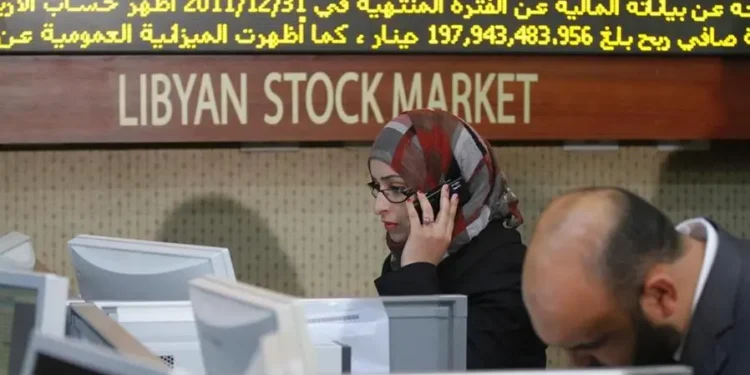Libya’s Stock Market officially reopened on Monday at a hall in the capital, Tripoli, after a prolonged closure spanning more than nine years due to political and security instability.*
The ceremony marking the resumption of trading was attended by the Prime Minister of the Government of National Unity, Abdulhamid al-Dbeibah, and the Chairman of the Board of Directors for the market, Bashir Mohamed Ashour, along with other high-ranking officials. The reopening was symbolized by the ringing of the bell to signal the commencement of trading activities.
The Prime Minister expressed optimism about the positive impact of the stock market on the Libyan economy, stating, “The importance of the stock market is embodied in doubling the gross domestic product and helping to close the budget deficit, which reduces the burden on the state’s general budget.”
Ashour emphasized that the success of the stock market would hinge on the stability and development of various sectors within the state. He further outlined the market’s commitment to fostering growth by increasing the volume of listings.
According to Lamin Haman, the market’s media adviser, out of the ten companies listed on Monday’s trading schedule, only three actively traded. However, he noted that efforts were underway to attract more companies to participate in future trading sessions.
The resumption of trading in Tripoli is seen as a positive sign for the country’s economic recovery, with expectations high for the market to play a crucial role in stimulating growth and addressing financial challenges. Additionally, reports suggest that the stock market’s trading hall in Benghazi is set to reopen next week, further contributing to the broader economic revitalization efforts in Libya.
What It Means for the Libyan Economy:
The reopening of Libya’s Stock Market is a crucial milestone for the nation’s economy, presenting opportunities for economic growth and stability. As Prime Minister al-Dbeibah highlighted, the stock market’s role in doubling the gross domestic product and aiding in budget deficit reduction is vital for alleviating the financial strain on the state. The renewed trading activity is expected to attract domestic and international investors, infusing much-needed capital into various sectors.
Moreover, the stock market’s success is closely tied to the stability and development of Libya’s diverse economic sectors, further emphasizing the need for a comprehensive and sustained recovery. By increasing the volume of listings and actively engaging companies, the market aims to become a catalyst for job creation, innovation, and overall economic prosperity.
The reopening of the stock market is a positive signal for Libya’s economic trajectory, demonstrating a commitment to rebuilding and attracting investments that will contribute to the nation’s long-term financial well-being.











